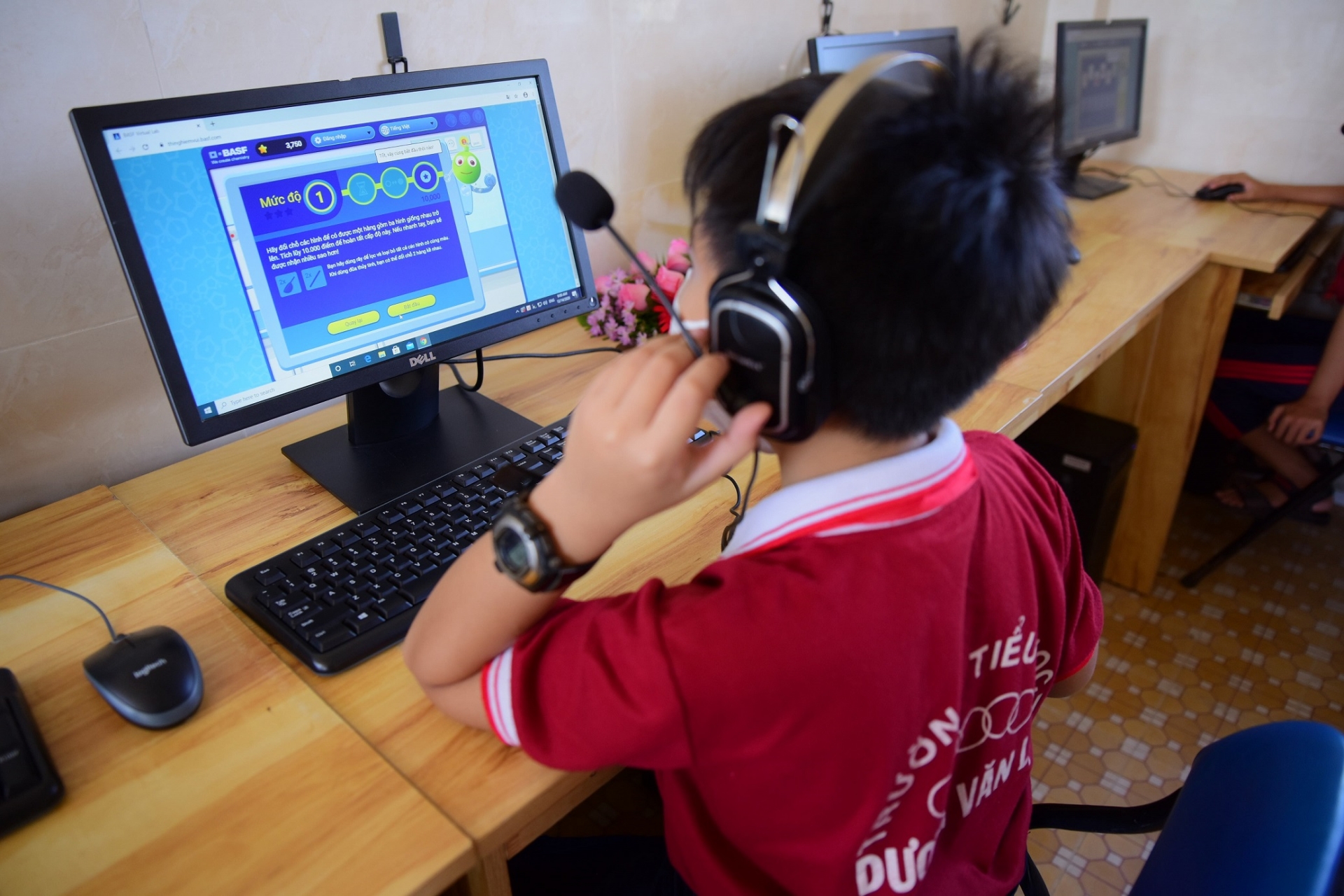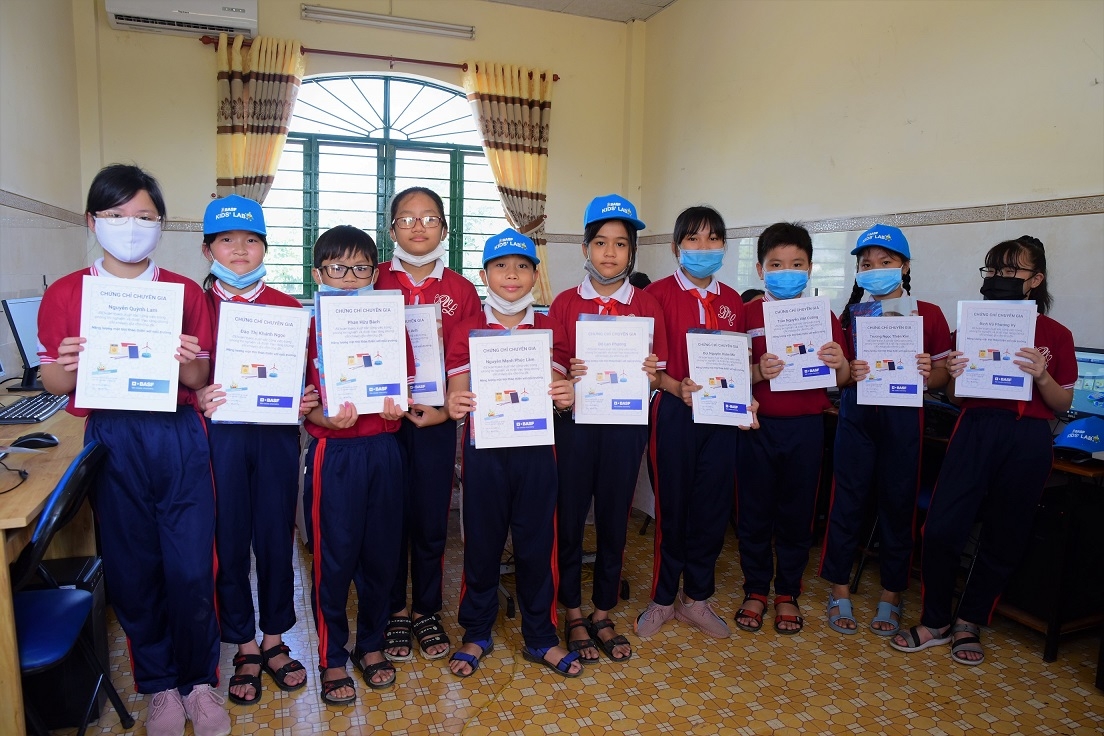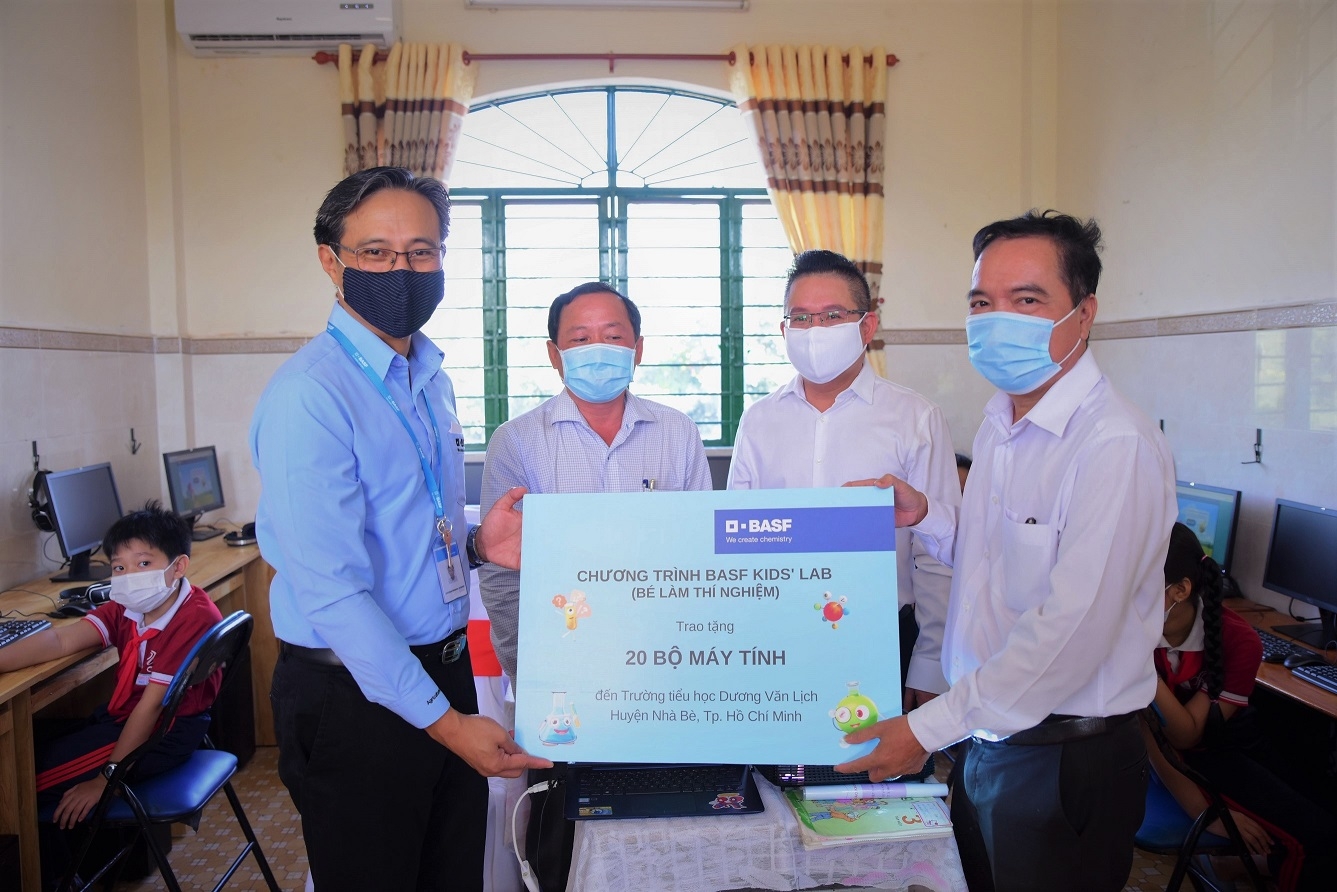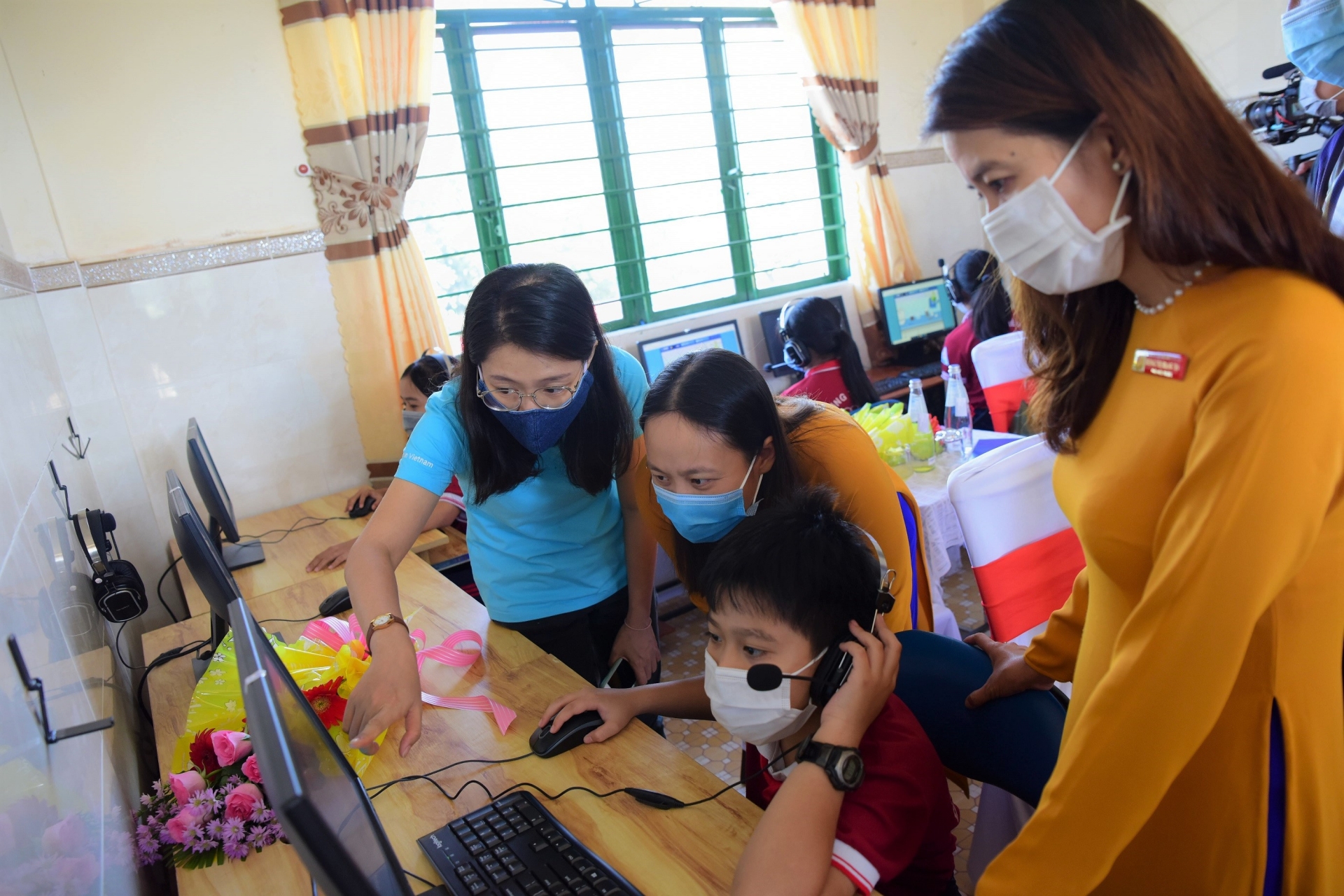BASF Virtual Lab offers two additional science experiments in Vietnamese
 |
| The primary students exploring what chemistry means in daily life through online experiments at BASF Virtual Lab |
For the two newly-launched experiments, the “Energy from the Sun” experiment helps the kids discover how a solar cell works and how it converts as much sunlight as possible into environmentally-friendly energy sources. In the “Foaming Beads” experiment, the students will examine what makes insulating materials and their differences before they learn to make the insulating materials themselves.
BASF Virtual Lab, an extension of BASF’s global hands-on chemistry education programme Kids’ Lab, provides a wide range of interactive experiments online. Children can experience the joy of chemistry anytime and anywhere. Each step of every experiment contains easy-to-understand explanations from the animated Kids’ Lab mascot Dr. Bubbles. New experiments are continuously added.
The five experiments that are already available in Vietnamese include “Looking for the sender”, “Chemistry Lab Bakery”, “Bubbling Refreshment”, “Water Purification”, and “Red Stain Devil”. The young scientists aged 8-12 can choose from a vast array of interactive experiments in the Virtual Lab and learn things like how to filter and clean dirty water, why laundry gets discolored, and how solar energy and photosynthesis work. The Virtual Lab is also available in German, English, and many other languages, such as Spanish, South Korean, Japanese, and Chinese.
 |
| The students received Expert’s Diploma upon completion of the online experiments |
BASF Kids’ Lab is a global programme that aims to develop children’s interests in natural sciences from an early age. In partnership with the Department of Education and Training, BASF has implemented this annual programme in Vietnam since 2011, which attracted almost 5,000 primary students in the city.
“This year, due to the pandemic, we cannot host physical Kids’ Lab sessions. Instead, we offer our future scientists two more online games in Vietnamese in the BASF Virtual Lab. They can explore the amazing world of chemistry from the comfort of their school or home,” said Erick Contreras, managing director, BASF Vietnam. “Nevertheless, Nha Be district is located in an outskirt area of the city where access to technology is relatively limited to many people, especially those immigrants working for nearby industrial parks. That is why we offer the required computers to support schoolchildren and teachers in their science education. This is one of the ways we are contributing to education development of Vietnam, one of our key markets in the region.”
In partnership with the Ho Chi Minh City Department of Education and Training, BASF hosted a training workshop for the teachers and students from Duong Van Lich Primary School, Nha Be district, to help them familiarise with the fascinating experiments and learn what chemistry means to their daily lives. The company also donated 20 computer sets to the school allowing teachers and students access to computer science and technology.
 |
| Erick Contreras, managing director of BASF Vietnam, presenting mock handover board to Le Van Hoa, principal of Duong Van Lich Primary School |
BASF Vietnam has been active in multiple community projects, including the partnership with Saigon Children’s Charity to renovate schools and to provide scholarships to disadvantaged university students. It also constructed four public playgrounds which are accessible to more than 12,000 children to build a variety of skills that are important to a child’s development.
 |
| A volunteer from BASF Vietnam helping teachers and students from the Duong Van Lich school to do online experiment |
What the stars mean:
★ Poor ★ ★ Promising ★★★ Good ★★★★ Very good ★★★★★ Exceptional
Related Contents
Latest News
More News
- State corporations poised to drive 2026 growth (February 03, 2026 | 13:58)
- Why high-tech talent will define Vietnam’s growth (February 02, 2026 | 10:47)
- FMCG resilience amid varying storms (February 02, 2026 | 10:00)
- Customs reforms strengthen business confidence, support trade growth (February 01, 2026 | 08:20)
- Vietnam and US to launch sixth trade negotiation round (January 30, 2026 | 15:19)
- Digital publishing emerges as key growth driver in Vietnam (January 30, 2026 | 10:59)
- EVN signs key contract for Tri An hydropower expansion (January 30, 2026 | 10:57)
- Vietnam to lead trade growth in ASEAN (January 29, 2026 | 15:08)
- Carlsberg Vietnam delivers Lunar New Year support in central region (January 28, 2026 | 17:19)
- TikTok penalised $35,000 in Vietnam for consumer protection violations (January 28, 2026 | 17:15)

 Tag:
Tag:




















 Mobile Version
Mobile Version